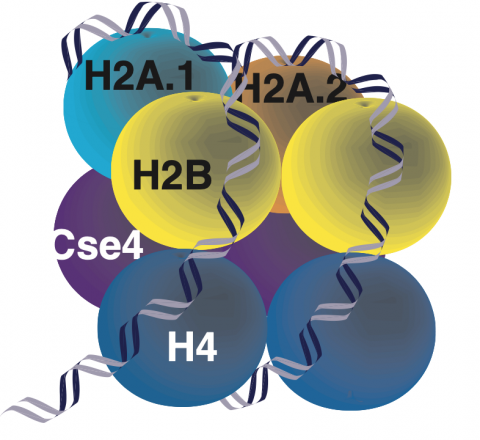
"A histone H2A variant and regulated deposition of Cse4/CENP-A foster programmed evolvability in Candida albicans" by Brimacombe et al. was published in the June, 2019 issue of PLoS Biology.
We found that C. albicans has evolved two mechanisms that enhance genome instability: 1) a variant of histone H2A lacks a conserved recruitment site for factors that promoting accurate chromosome segregation and 2) ploidy- and stress-dependent depletion of CENP-A/Cse4, a histone H3 variant that defines centromeres in eukaryotes. We hypothesize that the capacity for programmed variation through promiscuous chromosome segregation may enable rapid adaptation to stress and permitted the evolution of the parasexual cycle.